On Aug. 22, Private Manning announced that she wished to be known as Chelsea Manning — using the feminine pronoun — from this point forward. That is how she will be referred to in this and all future articles.
Chelsea Manning was born Dec. 17, 1987, in Crescent, Oklahoma, to Brian Manning, a veteran Navy intelligence officer, and Susan Fox, a Welsh woman he met while stationed overseas. Her parents also had a daughter, Casey, who was 11 when Chelsea was born.


Chelsea's first years were relatively happy. The family lived in a two-story house and ran a small farm on their five acres of land, with horses, pigs, a cow, and chickens.
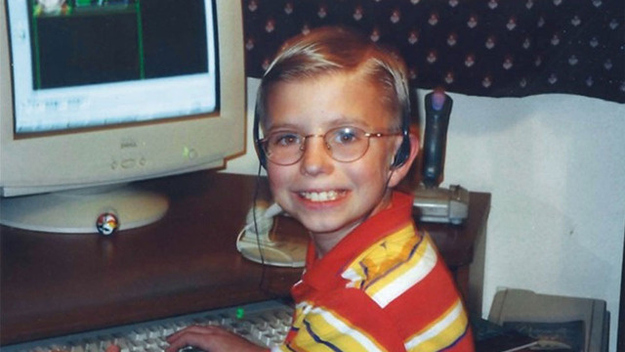
Manning was fascinated by electronics, and her father began teaching her computer programming at age 8.

As a child, she scored straight A's in school and won the science fair three years in a row.

Manning said that she was an "easy target" for bullies from a young age.

Manning began questioning her sexuality at the age of 13 and came out quietly to a few friends in 2000. "[She] just didn't feel it was necessary to tell [her] family," explained one of [her] childhood friends.

Manning's parents divorced in 2001, following an incident wherein Brian Manning allegedly abused Chelsea while drunk.
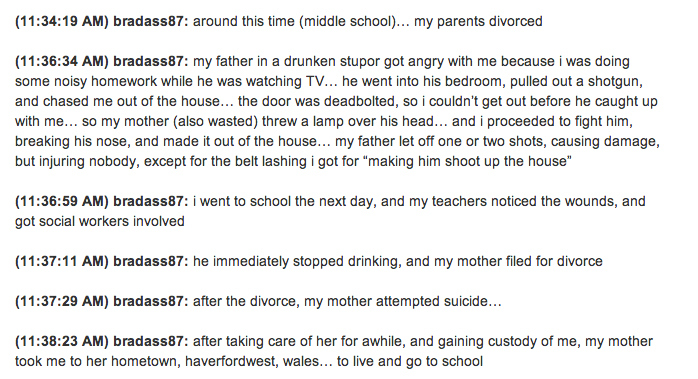
She spent the next four years in Wales with her mother, until Susan suffered a series of strokes in 2005 and became too ill to take care of her daughter.

Seventeen-year-old Manning "begged" her father to let her move back to the United States. She said she inadvertently witnessed the July 7, 2005, London bombings as she prepared to travel home.

In late 2005, Manning moved back to Oklahoma City to live with her father (who had remarried), her stepmother, and her stepbrother. Brian Manning helped Chelsea get a job as a programmer at a software startup, Zoto Inc.

Manning's coworkers at Zoto described her behavior as "erratic," and she was fired after a heated confrontation with her boss four months after she started at the company.

At home, Manning constantly fought with her father's new wife. On March 29, 2006, an argument escalated to such a degree that her stepmother called 911. She told the dispatcher that Manning threatened her with a knife.

Police escorted Manning from the house, but she was not arrested or charged. She moved out the next day. In a 2008 interview, Chelsea claimed that she was kicked out of the house for being gay.
A young man approaches me and starts telling his story. At first, I think he is joking when says he is a soldier from Fort Drum, but I realize he is not kidding once he begins telling me of his journey through life -- of the many times he has faced injustice due to his sexuality.
"I was kicked out of my home and I once lost my job," he said. "The world is not moving fast enough for us at home, work, or the battlefield."
Manning spent the next three months living out of her Nissan pickup truck, occasionally crashing with friends, until her father's sister in Potomac, Maryland, learned of her situation and offered her a place to stay.

Manning moved in with her aunt, Debra Van Alstyne, in July 2006. On her Facebook page, Manning wrote that Van Alstyne "basically saved my life."
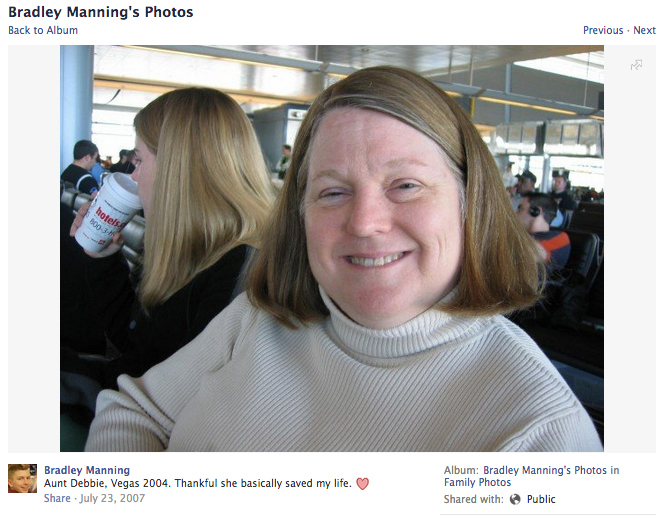
The next 15 months at her aunt's home outside Washington, D.C., were spent in relative stability. Manning worked part time at Abercrombie & Fitch and Starbucks, and enrolled in community college for one semester. She also began to date.
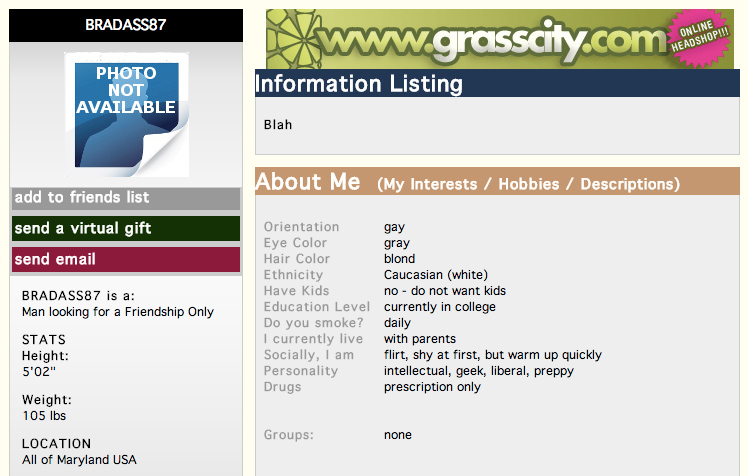
At the urging of her father — and what she described as "desperation to get somewhere in life" — Manning joined the Army in October 2007 and reported to Fort Leonard Wood, Missouri, for basic training.
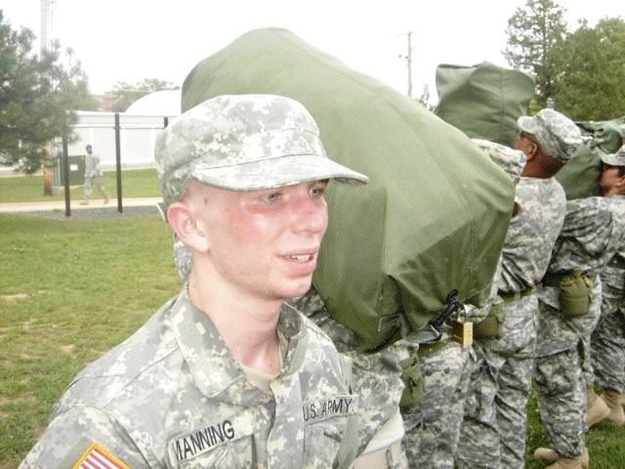
Manning injured herself in the early days of basic training and was placed on medical leave.
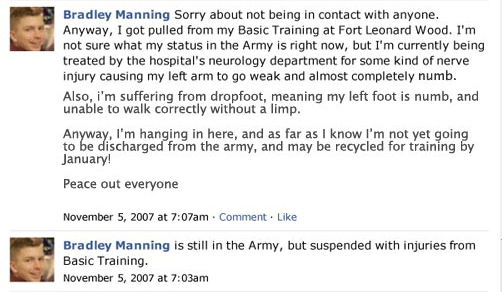
Years later, she described her injuries and explained why she persisted in joining the military:
Once at Fort Leonard Wood I quickly realized that I was neither physically nor mentally prepared for the requirements of basic training. My BCT experience lasted six months instead of the normal ten weeks. Due to medical issues, I was placed on a hold status. A physical examination indicated that I sustained injuries to my right soldier and left foot.
Due to those injuries I was unable to continue "basic". During medical hold, I was informed that I may be out processed from the Army, however, I resisted being chaptered out because I felt that I could overcome my medical issues and continue to serve. On 2[8 or 20?] January 2008, I returned to basic combat training. This time I was better prepared and I completed training on 2 April 2008.
After completing basic training, Manning reported to Fort Huachuca, Arizona, to begin her intelligence analyst training. During her time in Arizona, she was reportedly reprimanded for posting sensitive information in YouTube video messages to her family.

Manning, who enjoyed intelligence training, graduated from training in August 2008 with a top-secret security clearance.
I then reported for the MOS specific Advanced Individual Training or AIT on 7 April 2008. AIT was an enjoyable experience for me. Unlike basic training where I felt different from the other soldiers, I fit in did well. I preferred the mental challenges of reviewing a large amount of information from various sources and trying to create useful or actionable products. I especially enjoyed the practice of analysis through the use of computer applications and methods that I was familiar with.
Upon graduation, she was assigned to the 2nd Brigade, 10th Mountain Division at Fort Drum, New York. She served as an intelligence analyst and had access to classified networks, including SIPRnet, the Secret-level Defense and State Department network.
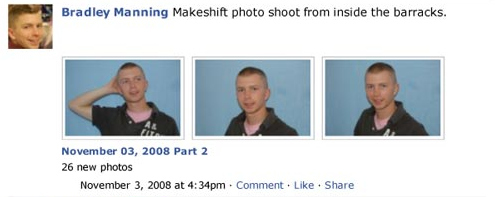
While stationed at Fort Drum, Manning began to advocate publicly for LGBT rights, attending rallies and speaking to reporters anonymously about her life as a gay soldier.
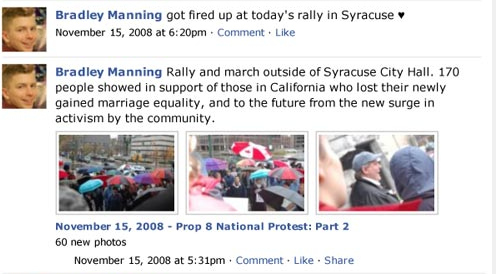
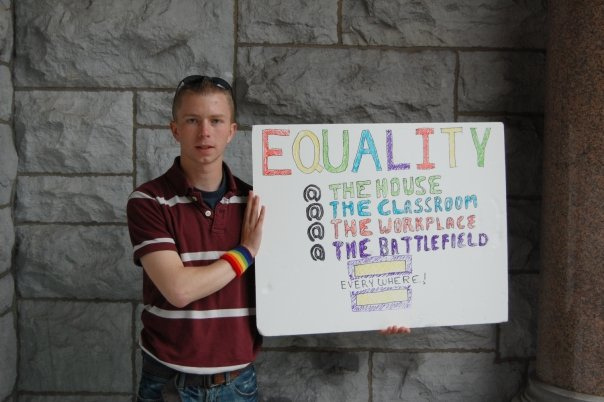
In December, Manning began her first serious relationship with a Brandeis student named Tyler Watkins.

She began making regular weekend visits to Boston to spend time with her boyfriend in January 2009.
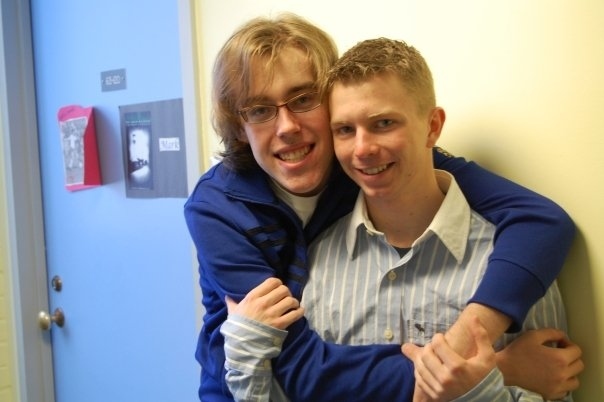

Manning followed California's Proposition 8 trial and the same-sex marriage debates in other states and regularly posted her opinions about issues of the day on Facebook.

On May 7, 2009, Manning attended an event in Washington, D.C., with San Francisco mayor and same-sex marriage advocate Gavin Newsom. She posted the picture on Facebook soon after.

In June 2009, Manning began displaying behavior that caused her supervisors to question her mental stability. Military reports indicate that she was first referred to counseling around this time.
On 30 June 2009, [Manning] was command referred to mental health at Fort Drum for difficulties adapting to his unit. His Non Commissioned Officer in Charge (NCOIC) reported that on being confronted by his supervisor for missing morning formation, the accused began screaming uncontrollably and clenching his fists. His eyes bulged in his face contorted. He screamed three times and stopped, caught his breath, and collected himself. Neither the accused nor the mental health provider found any evidence of significant mental health problem.
Manning referred herself for counseling in August 2009, allegedly telling the Fort Drum mental health staff that she was "isolating... going downhill, crying, and feeling vulnerable." She claimed to be close to a mental breakdown.

Manning and Watkins officially ended their relationship in September 2009, but they were soon talking again.

Manning's odd behavior prompted her commanding officers to order her to seek mental health counseling in September. Two of her commanding officers discussed leaving her behind when the unit deployed to Iraq in October.
On 15 September 2009 [Manning] was command referred to the Fort Drum mental health clinic. The mental health provider described [Manning] as presenting almost rigidly physically and emotionally through out the discussion, and no other probable cause for his being sent is developed. His demeanor is reflected as his perhaps being perceived as odd by others, although there does not appear to be anything diagnosable about it. [Manning] reported that both parents were alcoholics and since separating from his mother, he has had to rely on himself for survival, and for that reason very carefully manages his interactions with others. The accused was assessed with personality disorder... specified mild with cluster (c) characteristics-- excessive but not compulsive.
Ultimately, the lack of intelligence analysts in Iraq prompted Manning's superiors to send her to Baghdad with the rest of her unit in October.
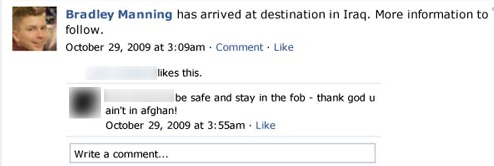
Soon after she arrived in Iraq, Manning began to grow troubled by her gender identity. She later wrote that the stress of deployment led her to question whether she identified as a man, and she reached out to a gender counselor online in November 2009.

Manning grew increasingly isolated in Iraq, in part because she was unable to talk openly about her sexuality due to "don't ask, don't tell."
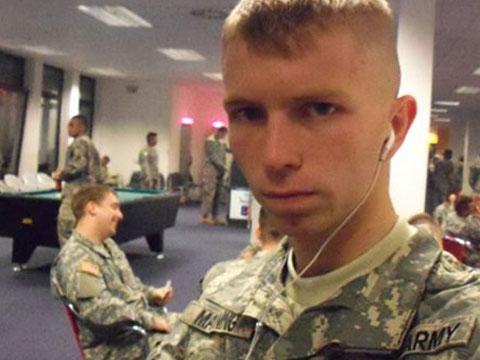
Manning's roommate stopped talking to her when he suspected that Manning was gay.
Defense (Coombs): Even though you were roomies, would it be fair to say you were not friends?
Eric Baker: Yes.
Defense (Coombs): You did not talk?
Baker: No.
Defense (Coombs): Conversations were limited to small things like, "Turn off the lights," or "Turn on the lights."
Baker: Yes.
Defense (Coombs): He [Manning] said some stuff that made you think he was gay?
Baker: Yes.
Defense (Coombs): And you told him it was best if you didn't speak?
Baker: Yes.
Defense (Coombs): Isn't that exactly what you told him?
Baker: Yes.
Defense (Coombs): "I think it's best we don't talk"?
Baker: Yes.
Manning was promoted from private first class to specialist on Nov. 12, 2009, and she posted photos of the ceremony on her Facebook account.
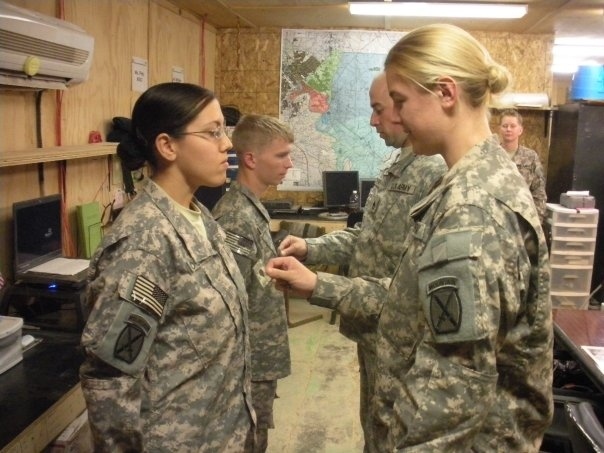
On Nov. 25, 2009, WikiLeaks.org released 500,000 intercepted text and pager messages sent in New York City and Washington, D.C., on Sept. 11 and Sept. 12, 2001.
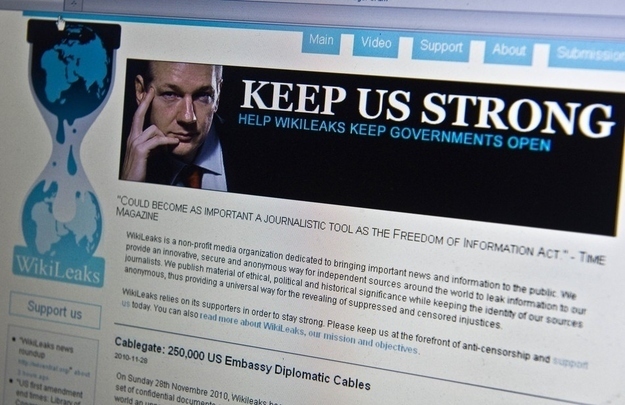
Manning reviewed the messages, realized they were government documents and began to use her security clearance to research WikiLeaks.

Her Facebook posts from around this time indicate that her state of mind had not improved since she began her deployment.

On Nov. 29, 2009, Manning began looking for a way to contact WikiLeaks founder Julian Assange.

Manning's behavior grew increasingly erratic in December 2009. On two occasions during disciplinary meetings with superior officers, she snapped and began yelling and turning over chairs and tables.
On 24 December 2009, [Manning] was command referred to FOB Hammer Combat Stress Clinic for a command-directed evaluation due to anger outbursts over the past year and a half-- where he shoved a chair and began yelling at NCOIC, Master Sergeant Paul Adkins after he counseled him on the loss of a room key and yelled and flipped the table when counseled by his supervisors.
[Manning] reported in that 2005 he was prescribed Lexapro by a family physician for problems he was experiencing with his step-mother, and he was referred to a physician by his aunt in 2007 due to anxiety attacks he was having and wanted him put on Lexapro. With respect to his current condition, [Manning] reported he was working the late shift with three other service members and that it was lonely. He reported persistent worry and anxiety about oversleeping and being late for duty and also a hypersensitivity to criticism of his mistakes. [Manning] was assessed with an anxiety disorder not otherwise specified, with a cluster (b)/(c) personality traits and insomnia. The accused had a normal mental status examination.
As part of her job, Manning had access to the Iraq and Afghanistan war event logs (technically named the CIDNE-I and CIDNE-A SigAct Tables). These logs contained US Army field reports and other classified internal documents.
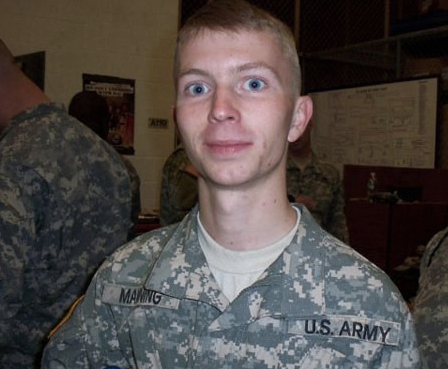
Manning downloaded copies of the classified Iraq and Afghanistan war logs and brought them home with her on leave.

Manning visited Tyler Watkins while home on leave and told him that she was considering leaking sensitive information. “[She] wanted to do the right thing," Watkins told Wired. “That was something I think [she] was struggling with.”
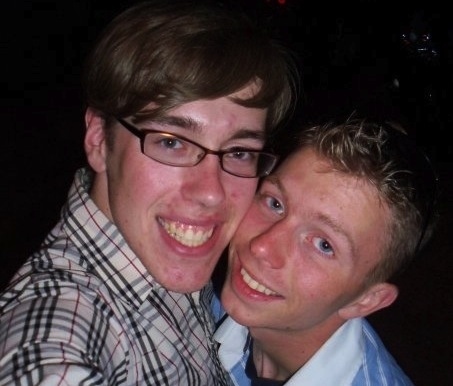
Manning later revealed that she had dressed as a woman during her trip home, with a "wig, breastforms, dress, the works."

It was during her time home on leave that Manning decided to leak the Iraq and Afghanistan war event logs. She later explained the reasoning behind her decision.
During this time a blizzard bombarded the mid-atlantic, and I spent a significant period of time essentially stuck in my aunt's house in Maryland. I began to think about what I knew and the information I still had in my possession. For me, the SigActs represented the on the ground reality of both the conflicts in Iraq and Afghanistan.
I felt that we were risking so much for people that seemed unwilling to cooperate with us, leading to frustration and anger on both sides. I began to become depressed with the situation that we found ourselves increasingly mired in year after year. The SigActs documented this in great detail and provide a context of what we were seeing on the ground.
In attempting to conduct counter-terrorism or CT and counter-insurgency COIN operations we became obsessed with capturing and killing human targets on lists and not being suspicious of and avoiding cooperation with our Host Nation partners, and ignoring the second and third order effects of accomplishing short-term goals and missions. I believe that if the general public, especially the American public, had access to the information contained within the CIDNE-I and CIDNE-A tables this could spark a domestic debate on the role of the military and our foreign policy in general as well as it related to Iraq and Afghanistan.
I also believed the detailed analysis of the data over a long period of time by different sectors of society might cause society to reevaluate the need or even the desire to engage in counterterrorism and counterinsurgency operations that ignore the complex dynamics of the people living in the effected environment everyday.
Manning later testified that she contacted The New York Times and The Washington Post about the documents but neither outlet took her seriously. She considered giving the documents to Politico, but the weather prevented her from traveling to their office.

Seeing no other option and determined to reveal the documents, on Feb. 3, 2010, while still at her aunt's house, Manning uploaded the Iraq and Afghanistan war logs to WikiLeaks. She attached a brief note:
It's already been sanitized of any source identifying information. You might need to sit on this information—perhaps 90 to 100 days to figure out how best to release such a large amount of data and to protect its source. This is possibly one of the more significant documents of our time removing the fog of war and revealing the true nature of twenty-first century asymmetric warfare. Have a good day.
Manning left the states on Feb. 8, and returned to Iraq.

Manning was now an active member of the WikiLeaks IRC chat room and it was there that she learned about the "Icesave" financial diplomatic dispute between Iceland, the Netherlands and the United Kingdom.
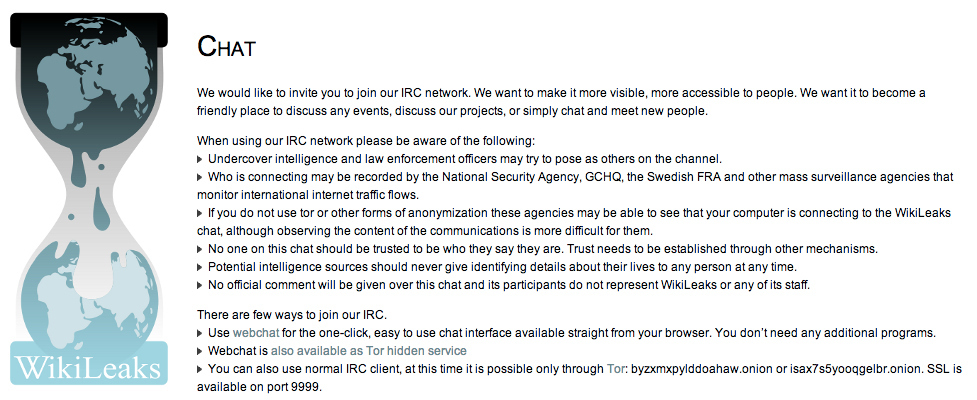
Manning did a quick search for any possible relevant diplomatic cable and found one that directly addressed the Icesave dispute. Although she was still unsure if WikiLeaks had received her war logs submission, Manning decided to upload the cable.

The cable went live on WikiLeaks hours after Manning uploaded it on Feb. 18, 2010. This led Manning to conclude that the organization had indeed received the Iraq and Afghanistan documents and that she was now listed as a credible source.

In mid-February, one of Manning's supervisors found a video of an aerial assault from July 12, 2007. While the others analyzed the video, Manning, who claimed to be "troubled" by it, decided to research its origins.
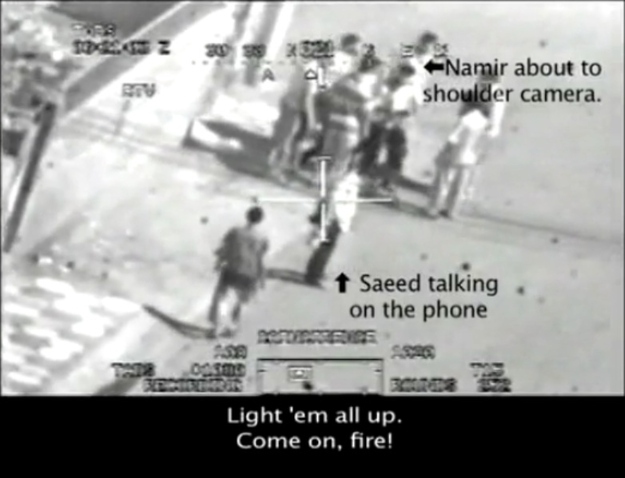
After realizing that the video depicted the deaths of two Reuters journalists and at least 16 civilans, she decided to send it and the rules of engagement to WikiLeaks on Feb. 21. She later explained her reasons.
It was clear to me that the event happened because the aerial weapons team mistakenly identified Reuters employees as a potential threat and that the people in the bongo truck were merely attempting to assist the wounded. The people in the van were not a threat but merely 'good samaritans'. The most alarming aspect of the video to me, however, was the seemly delightful bloodlust they appeared to have.
They dehumanized the individuals they were engaging and seemed to not value human life by referring to them as quote "dead bastards" unquote and congratulating each other on the ability to kill in large numbers. At one point in the video there is an individual on the ground attempting to crawl to safety. The individual is seriously wounded. Instead of calling for medical attention to the location, one of the aerial weapons team crew members verbally asks for the wounded person to pick up a weapon so that he can have a reason to engage. For me, this seems similar to a child torturing ants with a magnifying glass.
Soon after uploading the Apache video, Manning received a response from someone in the WikiLeaks chat room who went by the handle "office." They began to chat regularly and Manning later said she believed the individual to be important in WikiLeaks.
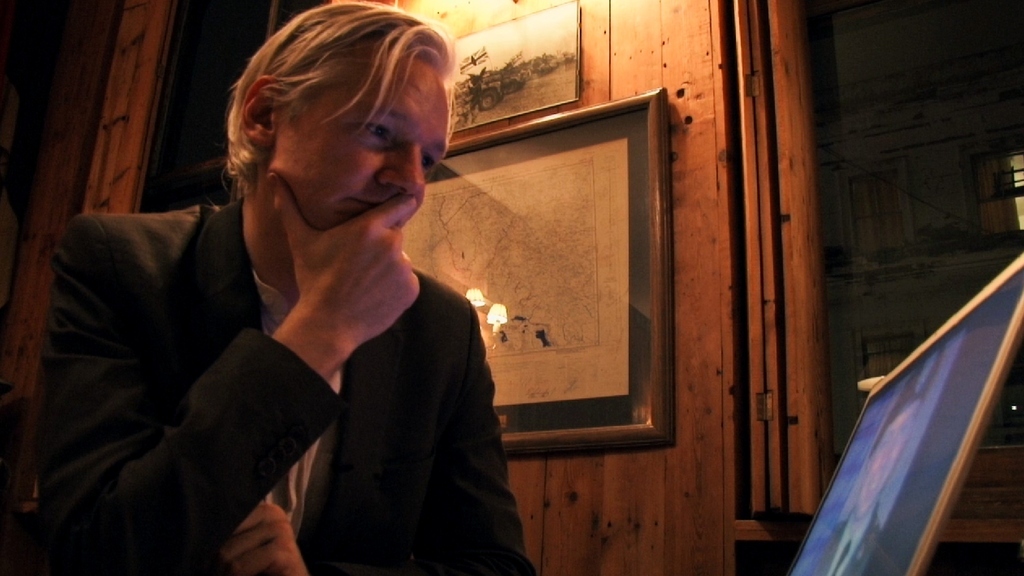
"Over the next few months, I stayed in frequent contact with [this person]," Manning testified. "We conversed on nearly a daily basis and I felt that we were developing a friendship."
Due to the strict adherence of anonymity by the WLO, we never exchanged identifying information. However, I believe the individual was likely Mr. Julian Assange, Mr. Daniel Schmidt, or a proxy representative of Mr. Assange and Schmidt.
As the communications transferred from IRC to the Jabber client, I gave 'office' and later 'pressassociation' the name of Nathaniel Frank in my address book, after the author of a book I read in 2009.
After a period of time, I developed what I felt was a friendly relationship with Nathaniel. Our mutual interest in information technology and politics made our conversations enjoyable. We engaged in conversation often. Sometimes as long as an hour or more. I often looked forward to my conversations with Nathaniel after work.
In the midst of this, Manning spoke anonymously to the Washington Blade about changes to "don't ask, don't tell" for an April 1, 2010, article.
Among those serving who are pleased with the changes is a gay U.S. Army soldier currently in Iraq, who spoke to DC Agenda on condition of anonymity to avoid being discharged under "Don't Ask, Don't Tell."
The soldier, who has been seeing a psychotherapist in part because of the stress of serving under "Don't Ask, Don't Tell," said the new change allowing LGBT service members to disclose their sexual orientation to mental health experts would be particularly beneficial for him.
During his therapy sessions, the soldier said he had been dodging questions about his sexual orientation, or even unrelated matters that he thought may have outed him under the law. But with the new regulations in place, the soldier said he plans to come out to his psychotherapist in an upcoming session.
"In my particular instance, it's the fact that I can talk about more than just any problems that I'm having at work or any problems that I'm having at home," he said. "I can talk about issues that I'm having with my ex-boyfriend — and just identity issues. It just takes off a lot of stress because you can discuss more without having to censor yourself."
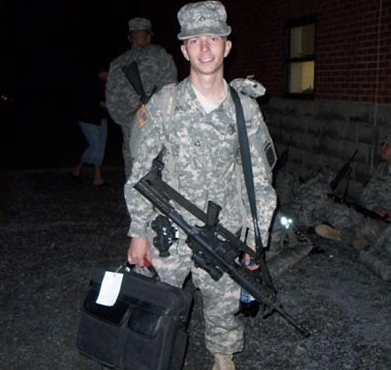
Manning began exploring diplomatic cables in her spare time and the information she observed prompted her to upload them to WikiLeaks as well.
The more I read the cables, the more I came to the conclusion that this was the type of information that-- that this type of information should become public. I once read a and used a quote on open diplomacy written after the First World War and how the world would be a better place if states would avoid making secret pacts and deals with and against each other.
I thought these cables were a prime example of a need for a more open diplomacy. Given all of the Department of State information that I read, the fact that most of the cables were unclassified, and that all the cables have a SIPDIS caption, I believe that the public release of these cables would not damage the United States; however, I did believe that the cables might be embarrassing, since they represented very honest opinions and statements behind the backs of other nations and organizations.
"Hillary Clinton and several thousand diplomats around the world are going to have a heart attack when they wake up one morning, and find an entire repository of classified foreign policy is available, in searchable format, to the public," Manning wrote.

She uploaded the cables, some of which dated back to 1966, to WikiLeaks on April 10. This is considered to be the world's largest release of classified material.

Manning's complicated relationship with her on-again, off-again boyfriend also added to her stress level at this time.
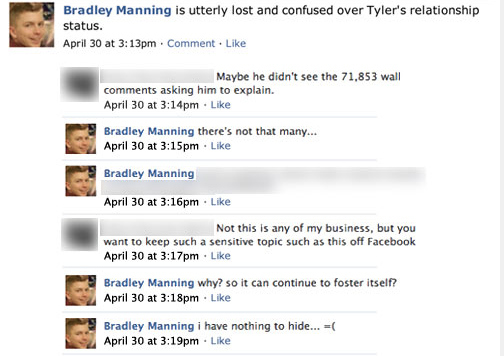
In late April, Manning emailed a letter to an Army superior confessing her gender identity disorder and sent a photo of herself dressed as a woman to one of her commanding officers.
This is my problem. I've had signs of it for a very long time. I've been trying very, very hard to get rid of it. It is not going away. It is haunting me more and more as I get older. Now the consequences are getting harder. I am not sure what to do with it. It's destroying my ties with family. It is preventing me from developing as a person. It's the cause of my pain and confusion. It makes the most basic things in my life very difficult.
The fear of getting caught has made me cover up. It is difficult to sleep and impossible to have conversations. It makes my entire life feel like a bad dream that won't end. I don't know what to do. I don't know what to do. I don't know what will happen to me. But at this point I feel like I am not here anymore. Everyone is concerned about me, and everyone is afraid of me. I am sorry.
Signed, Bradley Manning.

These Facebook updates, posted six minutes apart, give a look inside Manning's mental state at the end of April.

Manning's last Facebook post before her arrest. After this, she began to spiral out of control.

On May 7, Manning was discovered curled up in one of the unit's conference rooms at the foot of a chair.
Defense (Coombs): Did you find Manning curled into a ball?
Showman: Shortly after this. The night of May 7. He was in the conference room of the S.C.I.F.
Defense (Coombs): What time?
Showman: Between 8:00 and 10:00 [p.m.] in the evening around our shift change time.
Defense (Coombs): You reported to CW4 [Chief Warrant Officer 4] Airsman?
Showman: I believe I said, "Be ready for something to happen again." I told him what I saw, that Manning was in a fetal position.
Defense (Coombs): Why did you tell him, "Be ready for something to happen again"?
Showman: I assumed his actions would lead up to some of the displays we had already seen Manning produce.
"Manning had etched on his seat 'I want' with the blade. He felt that he was not there; was not a person. He said he was a turtle with a core personality and several layers of hard shell to protect his personality."
A few hours after Manning was discovered in the fetal position, she allegedly punched Spec. Jirleah Showman in the face. Showman testified that Manning was saying, "I'm tired of this. I'm tired of everyone watching" as she attacked her.
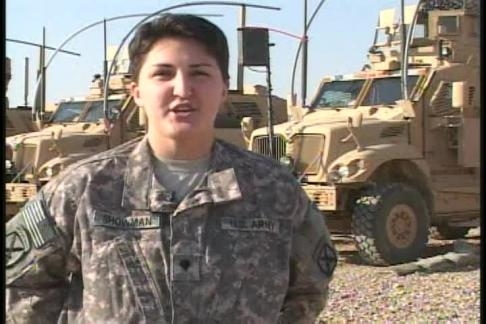
Manning later said that the incident was out of character for her.
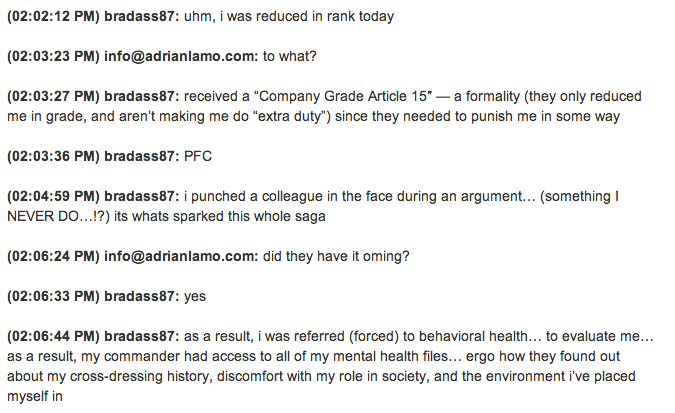
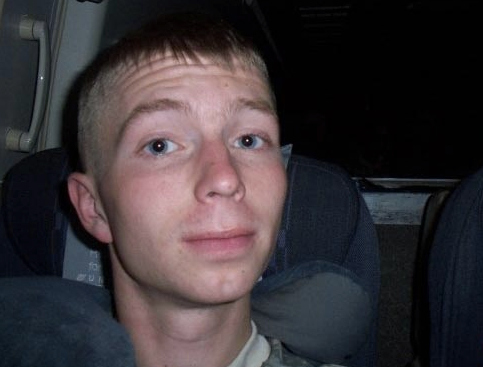
On May 21, Manning began to chat with Adrian Lamo, the high-profile hacker who would eventually turn her in. Lamo was known for breaking into computers at The New York Times, Yahoo, and Microsoft.
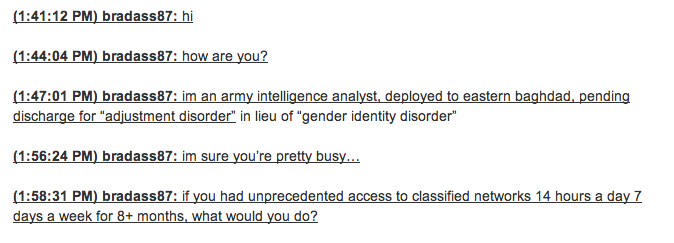
Manning appeared to be grateful to have someone listening to her.
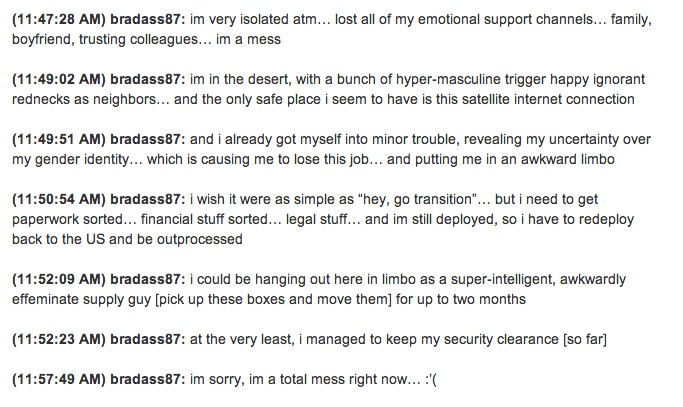
Manning revealed that she had been working directly with Julian Assange and that she had been offered a job at WikiLeaks.

Manning, who planned to transition from male to female, worried about being caught and there being photos of her "as a boy" in the media.

On May 25, Manning wrote that she was establishing a digital presence for "Breanna Manning," the name she planned — at that time — to assume after transitioning.

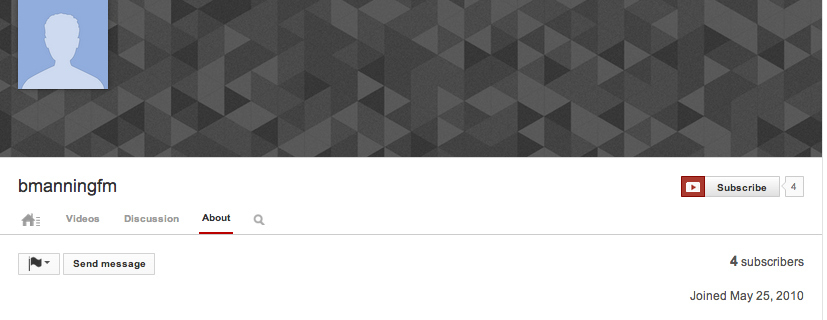
Manning was arrested for leaking classified information on May 26, 2010, and held in Kuwait. On June 5, she called her aunt and asked her to update her Facebook page with news of her arrest.
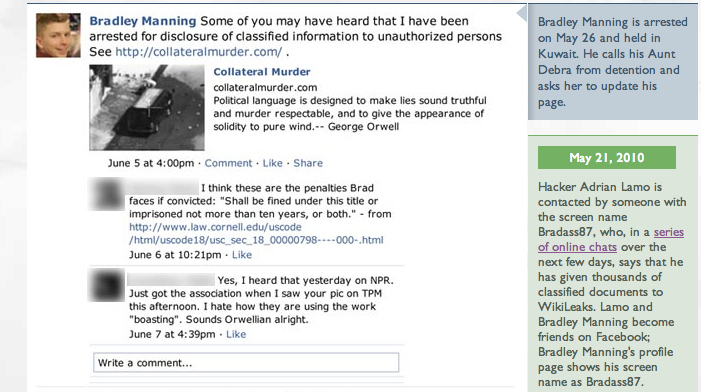
More than three years after she was arrested and charged in the biggest leak of classified information in U.S. history, 25-year-old Private Manning was sentenced to 35 years in prison for leaking classified information to WikiLeaks.
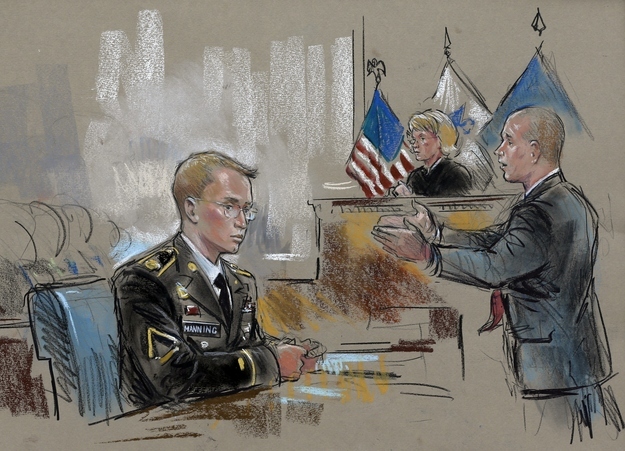

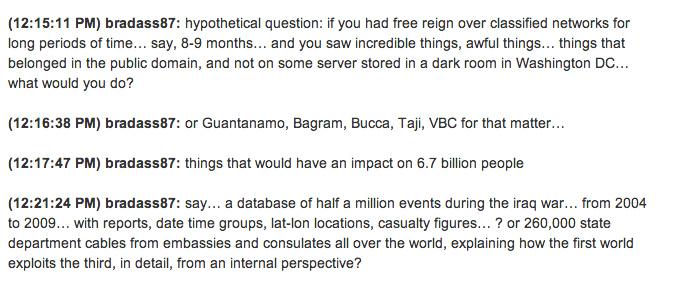
The day after the sentencing, Manning revealed via a letter to her supporters that she was beginning a new life as Chelsea.

I want to thank everybody who has supported me over the last three years. Throughout this long ordeal, your letters of support and encouragement have helped keep me strong. I am forever indebted to those who wrote to me, made a donation to my defense fund, or came to watch a portion of the trial. I would especially like to thank Courage to Resist and the Bradley Manning Support Network for their tireless efforts in raising awareness for my case and providing for my legal representation.
As I transition into this next phase of my life, I want everyone to know the real me. I am Chelsea Manning. I am a female. Given the way that I feel, and have felt since childhood, I want to begin hormone therapy as soon as possible. I hope that you will support me in this transition. I also request that, starting today, you refer to me by my new name and use the feminine pronoun (except in official mail to the confinement facility). I look forward to receiving letters from supporters and having the opportunity to write back.
